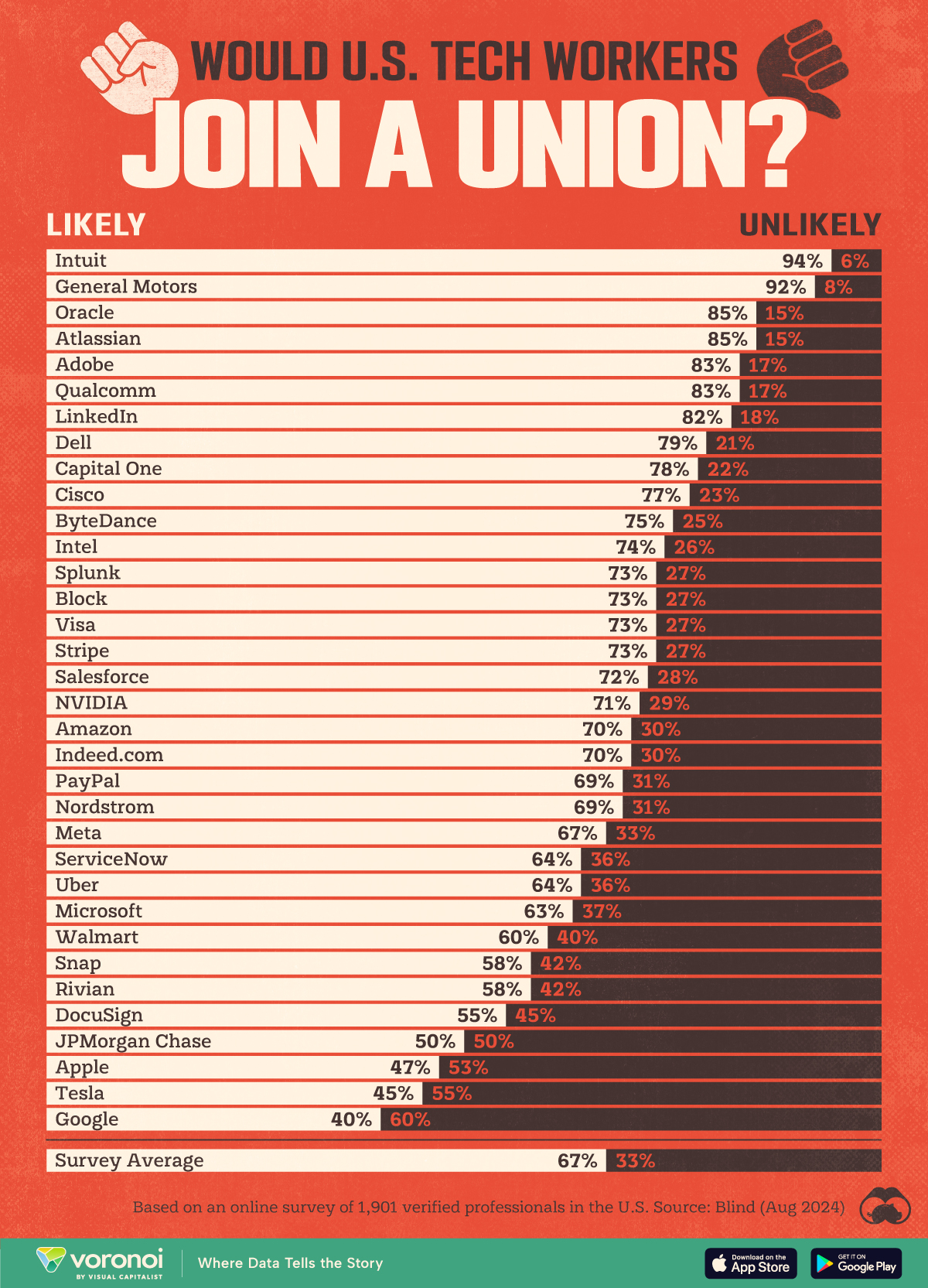this post was submitted on 01 Oct 2024
95 points (100.0% liked)
unions
1656 readers
84 users here now
a community focused on union news, info, discussion, etc
Friends:
- https://lemmy.ml/c/labor
- https://sh.itjust.works/c/unions
- https://lemmy.ml/c/coops
- https://lemmy.ml/c/antitrust
founded 2 years ago
MODERATORS
you are viewing a single comment's thread
view the rest of the comments
view the rest of the comments

It is younger people that have been on the receiving end of worse working conditions and compensation that lead those efforts. And often it is socialists or vaguely left people doing so, as it requires a certain level of consciousness to make this happen.
The efforts based on, for example, pure ideological struggles, where the workers wrongly believed the corporate BS that they had power in the company, have done the worst. For example, the Alphabet Union isn't even a union. Its organizers were hounded out of the company and it is now just a group of disaffected people with no organizing power. This is because Google maintained salaries and perceptions of "prestige". The workers there could not be sufficiently motivated by, say, the dangers of AI or racism.
This is why the companies at the top of the list are those with the worst working conditions and prestige. Not a single FAANG.
I'm not sure what you mean by this.
They are becoming partially proletarianized because capital has reoriented and tech engineers are no longer in enough demand compared to their supply. Layoffs say, "we don't want to employ you, we will make more money with you gone". Fewer jobs vs. more workers is the usual arrangement under capitalism and it is the main reason why the fed targets a certain higher-than-zero level of unemployment. The "success" of private businesses, particularly large ones, is partly determined by their power over workers and in driving down wages. Tech workers were resilient against this because there was basically infinite low interest loan money for their attempts to create monopolies and therefore a ton of startups and large companies buying up those startups. We ais now in a profit-taking phase for the monopolies that developed. See: the massive Uber price hikes. This also aligns with the fed strategy of higher interest rates intended to make smaller and more precarious companies fail, thus simultaneously making more workers unemployed and reducing competition for the monopolies. They are looking to create a soft recession and pressing the buttons they can, though it isn't working exactly as they expected.
It will take a long time for the overall culture to change, it has to filter all the way down to colleges and to mass perceptions. It may even reverse if tech money explodes again and the proletarianization process reverses. I don't think it will, the long-term plan to graduate way more CS and other engineering students is paying off for the industry and the main avenues for monopolization are mature outside of "AI" hype that is mostly vaporware.
To more directly speak to tech worker unionization, if you speak to the workers at most companies you will have the least productive organizing conversations you will ever experience. They are much, much more resistant to identifying workplace issues, much more sympathetic with management, much more willing to narc on organizing efforts, and much more likely to ideologically oppose unions. These tendencies correlate to their perceived career trajectories.
Ah but I do, I'm part of tech workers coalition. For sure there's ground to gain, but in the last 5 years, or compared to my university years, it has been an immense change, change that is possibly still invisible from the outside. For instance, I now see tech workers a lot more prone to collective action than categories like designers, architects or chefs that are hopelessly fragmented.
Being part of TWC does not mean you are having actual organizing conversations with rank and file engineers to get them to form a union. How have organizing conversations gone with Google employees? Not the ones that come to you. The ones where you go to them. Do they say yes to your direct asks? Do they join the organizing committee? Do they rat you out?
I'm not part of Google. I'm not even American. You're taking a specific worst case to generalize for a global industry. Google is an anomaly in every regard.
I'm also not part of Google...